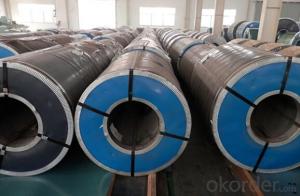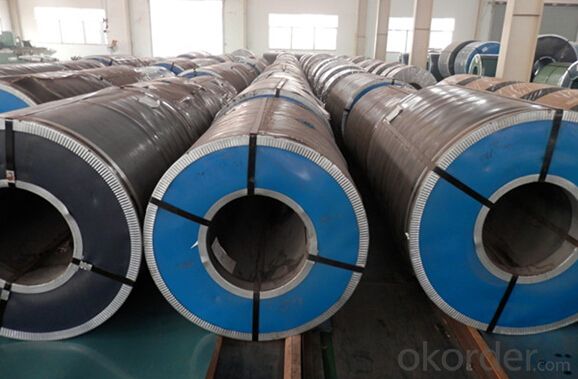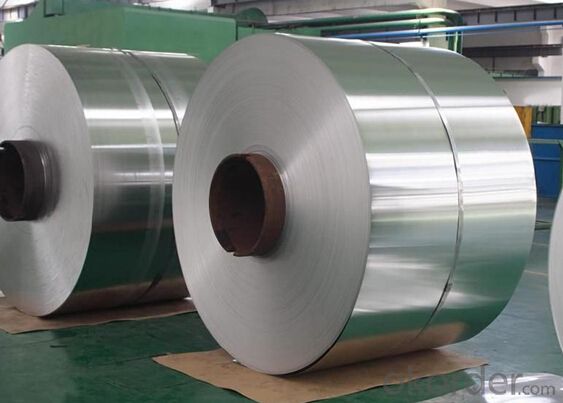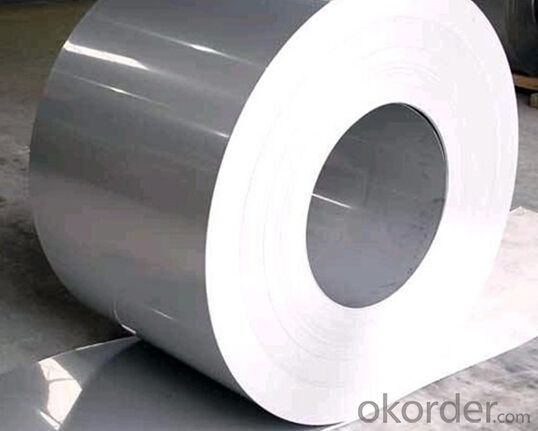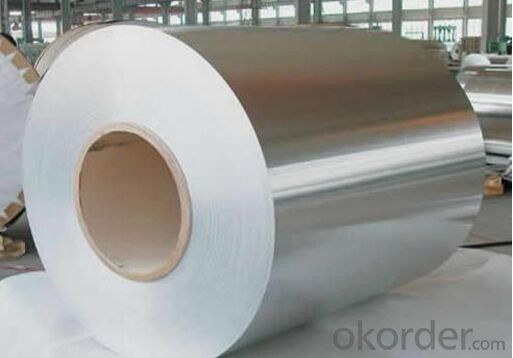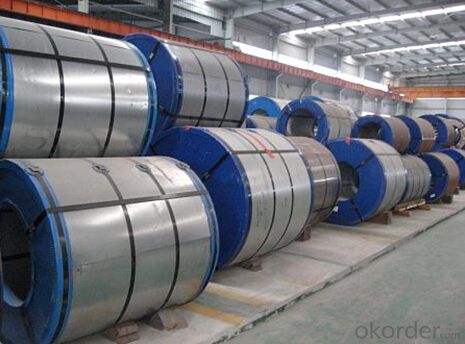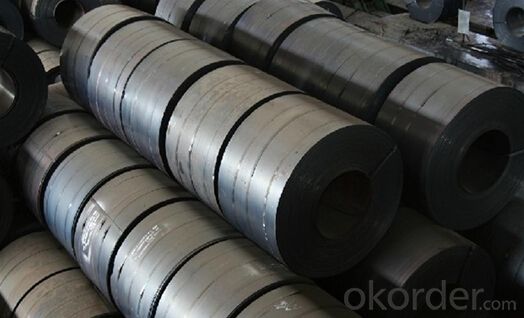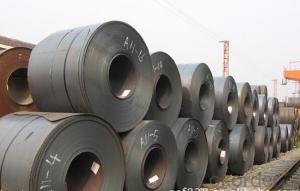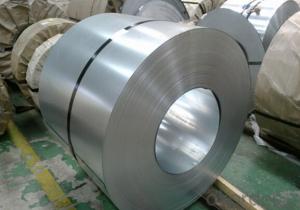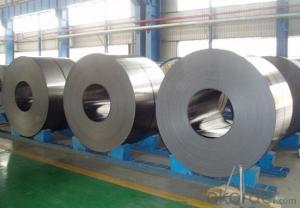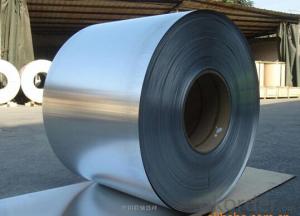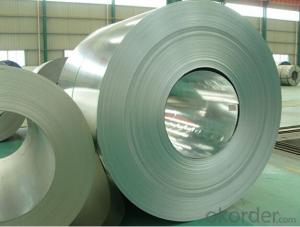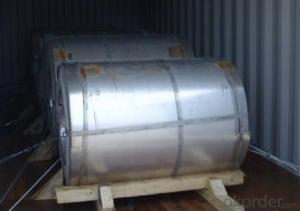Grade EN10346-DX53D+Z Galvanized Steel Coil
- Loading Port:
- Tianjin
- Payment Terms:
- TT OR LC
- Min Order Qty:
- 3 m.t.
- Supply Capability:
- 10000 m.t./month
OKorder Service Pledge
OKorder Financial Service
You Might Also Like
Specification
Grade Grade EN10346-DX53D+Z Galvanized Steel Coil
Specification of Grade Grade EN10346-DX53D+Z Galvanized Steel Coil
1. Galvanized Steel Coil
(1) Width: 600-1570mm
(2) Thickness: 0.13-5.0mm
(3) Grade: JIS G3302-SGCC-SGC570, SGCH (full hard-G550), SGHC-SGH540
EN10346-DX51D+Z, DX53D+Z, S250GD-S550GD
STM A653-CS-B, SS255-SS550
(4) Zinc Coating: Z40g/m2~Z500g/m2 (both side total coating thickness)
2. Galvalume Steel Coil
(1) Width: 600~1500mm
(2) Thickness: 0.15~2.30mm
(3) Grade: JIS G3321-SGLCC, SGLC400-570, (G550)
EN10346-DX51D+AZ, DX53D+AZ, S250-S550
ASTM A792M CS-B, SS255-SS550
(4) AZ Coating: AZ50~AZ185g/m2
3. Prepainted Galvanized Steel Coil (PPGI)
(1) Width: 600~1250mm
(2) Thickness: 0.19~1.50mm
(3) Grade: JIS G3312-CGCC, CGC340-570, (G550)
ASTM A755M CS-B, SS255-SS550
(4) Zinc Coating: Z40g/m2~Z500g/m2 (both side total coating thickness)
4. Prepainted Galvanized Steel Coil (PPGL)
(1) Width: 600~1250mm
(2) Thickness: 0.20~1.50mm
(3) Grade: JIS G3322-CGLCC, CGLC340-570, (G550)
ASTM A755M CS-B, SS255-SS550
(4) AZ Coating: AZ50~AZ185g/m2 (both side total coating thickness)
5. Cold Rolled Steel Coil (Soft) (for further information, pls click the product name)
(1) Width: 600~1570mm
(2) Thickness: 0.13~2.50mm
(3) Grade: JIS G3141-SPCC-SD, SPCD-SD, SPEC-SD
JIS G3135-SPFC 340/390/440
EN10130-DC01, DC03, DC04
SAE1006, SAE1008
ASTM A424-TypeⅡ
6. Cold Rolled Steel Coil (Full Hard) (for further information, pls click the product name)
(1) Width: 600~1570mm
(2) Thickness: 0.13~2.50mm
(3) Grade: JIS G3141-SPCC-1B, SPCC-1D
7. Hot Rolled Steel Coil
(1) Width: 1000~1524mm
(2) Thickness: 1.20~16.5mm, other thickness can be negotiation
(3) Grade: JIS G3101-SS400, JIS G3132-SPHT1/2/3, ASTM A36, Q195, Q235 etc.
Company Introduction of the Grade EN10346-DX53D+Z Galvanized Steel Coil
CNBM International Corporation is the most import and export platform of CNBM group(China National Building Material Group Corporation) ,which is a state-owned enterprise, ranked in 270th of Fortune Global 500 in 2015.
With its advantages, CNBM International are mainly concentrate on Cement, Glass, Iron and Steel, Ceramics industries and devotes herself for supplying high quality series of refractories as well as technical consultancies and logistics solution.
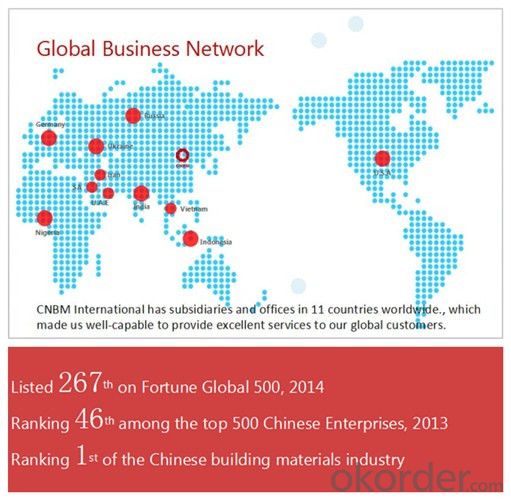
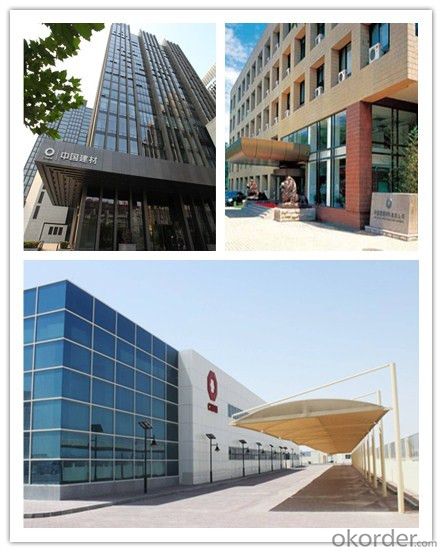
Packaging & Delivery of the Grade EN10346-DX53D+Z Galvanized Steel Coil
Packaging Detail | Sea worthy packing /as per customer's packing instruction |
Delivery Detail | 15 ~ 40 days after receiving the deposit |
Products Show:
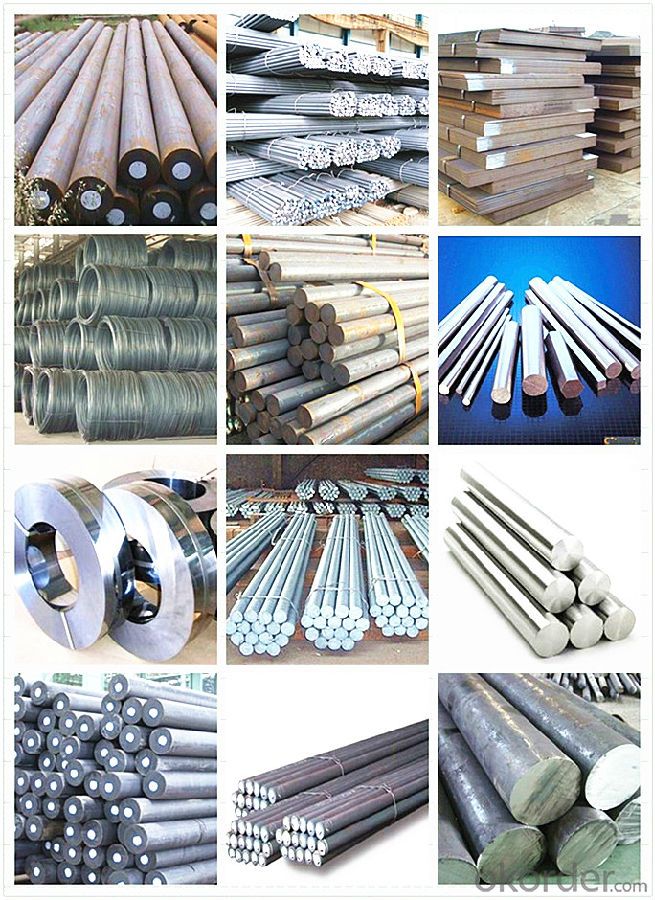
FAQ:
Are you a trading company or manufacturer? | Manufacturer |
What’s the MOQ? | 3 metric ton |
What’s your delivery time? | 15-35 days after downpayment received |
Do you Accept OEM service? | Yes |
what’s your delivery terms? | FOB/CFR/CIF |
What's the Payment Terms? | 30% as deposit,70% before shipment by T/T |
Western Union acceptable for small amount. | |
L/C acceptable for large amount. | |
Scrow ,Paybal,Alipay are also ok | |
Why choose us? | Chose happens because of quality, then price, We can give you both. Additionally, we can also offer professional products inquiry, products knowledge train (for agents), smooth goods delivery, excellent customer solution proposals. |
What's your available port of Shipment? | Main Port, China |
What’s your featured services? | Our service formula: good quality+ good price+ good service=customer's trust
|
Where are your Market? | Covering more than 160 countries in the world |
- Q: How is special steel used in the aerospace industry?
- Special steel is used in the aerospace industry for various applications, including the manufacturing of critical components such as jet engines, landing gear, and airframe structures. Due to its exceptional strength, corrosion resistance, and heat resistance properties, special steel ensures the safety, durability, and performance of aircraft while operating under extreme conditions.
- Q: What are the main characteristics of heat-resistant steel forgings?
- High-temperature applications can benefit from the use of heat-resistant steel forgings due to their distinct characteristics. Firstly, these forgings possess exceptional resistance to oxidation and corrosion, enabling them to maintain their mechanical properties even under elevated temperatures. This resistance is achieved by incorporating alloying elements such as chromium, nickel, and molybdenum, which form a protective oxide layer on the steel's surface. Secondly, heat-resistant steel forgings demonstrate remarkable strength and toughness when exposed to high temperatures. This is crucial for applications that subject the material to mechanical stress and thermal cycling, such as gas turbines, power plants, and aerospace engines. The combination of high strength and toughness ensures that the forgings can endure harsh operating conditions without deformation or failure. Another significant characteristic of heat-resistant steel forgings is their ability to retain hardness and dimensional stability even after prolonged exposure to high temperatures. This is accomplished through meticulous alloying and heat treatment processes, optimizing the steel's microstructure. As a result, the material possesses a fine grain structure and high uniformity, enhancing its resistance to thermal fatigue and creep. Moreover, heat-resistant steel forgings exhibit good thermal conductivity, facilitating efficient heat transfer and dissipation. This is particularly important in applications where heat generation needs effective management to prevent overheating and damage to surrounding components. Lastly, heat-resistant steel forgings can be easily machined and fabricated into intricate shapes, making them versatile and suitable for various applications. They can be forged, machined, and welded without significant loss of mechanical properties, making them ideal for manufacturing components with complex designs and high precision requirements. In conclusion, the main characteristics of heat-resistant steel forgings include excellent resistance to oxidation and corrosion, high strength and toughness at high temperatures, dimensional stability and hardness retention, good thermal conductivity, and ease of machining and fabrication. These characteristics make heat-resistant steel forgings indispensable in industries that require reliable and durable materials in extreme heat conditions.
- Q: How does special steel contribute to the manufacturing of medical implants?
- Special steel plays a vital role in the manufacturing of medical implants by offering superior strength, corrosion resistance, and biocompatibility. These properties are crucial for ensuring the longevity and functionality of implants, allowing them to withstand the harsh conditions within the human body. Additionally, special steel can be shaped and machined into complex forms, enabling the production of intricate and customized implants to meet the specific needs of patients. Overall, special steel is essential for producing high-quality and reliable medical implants that enhance patient outcomes and improve their quality of life.
- Q: How is nitriding steel used in the production of tools and dies?
- Nitriding steel is used in the production of tools and dies to enhance their hardness, wear resistance, and overall performance. The process of nitriding involves introducing nitrogen to the surface of the steel, forming a hard nitride layer that significantly improves the tool's durability and lifespan. This treatment allows the tools and dies to withstand high temperatures, resist corrosion, and maintain their sharpness, making them more efficient and cost-effective in various industrial applications.
- Q: How does special steel contribute to the aerospace landing gear industry?
- Special steel plays a vital role in the aerospace landing gear industry by providing the necessary strength, durability, and resistance to extreme conditions. It enables the landing gear to withstand heavy loads, high temperatures, and corrosive environments, ensuring the safe landing and takeoff of aircraft. Additionally, special steel's lightweight properties help reduce the overall weight of the landing gear, resulting in improved fuel efficiency and increased payload capacity.
- Q: How does special steel contribute to the automotive noise reduction?
- Special steel contributes to automotive noise reduction in several ways. Firstly, it is durable and strong, allowing for the construction of thinner and lighter components. This reduces the overall weight of the vehicle, resulting in reduced road and engine noise. Additionally, special steel has excellent vibration-damping properties, which helps absorb and minimize noise generated by the engine, suspension, and other moving parts. The use of special steel in the design of automotive structures and panels also helps reduce noise transmission from the outside environment into the cabin, providing a quieter and more comfortable driving experience for passengers.
- Q: How does special steel contribute to the manufacturing of surgical instruments?
- Special steel is a crucial material in the manufacturing of surgical instruments due to its exceptional properties such as high corrosion resistance, strength, and durability. These qualities enable surgical instruments to withstand the harsh sterilization processes and provide long-lasting performance in medical settings. Additionally, special steel's ability to be shaped into intricate designs and its compatibility with sterilization methods ensures precision and hygiene in surgical procedures.
- Q: Can special steel be used in the production of medical implants?
- Yes, special steel can be used in the production of medical implants. Special steel alloys such as stainless steel or titanium alloys are commonly used in the manufacturing of medical implants due to their high strength, corrosion resistance, and biocompatibility properties. These materials are carefully selected to ensure compatibility with the human body and to promote successful implantation and long-term functionality.
- Q: Can special steel be used in the aerospace parts manufacturing industry?
- Yes, special steel can be used in the aerospace parts manufacturing industry. Special steel alloys, such as stainless steel or high-strength alloys like titanium, are commonly utilized in the aerospace industry due to their excellent strength, durability, corrosion resistance, and heat resistance properties. These materials are vital for manufacturing critical components like aircraft engines, landing gears, and structural parts, ensuring safety and performance in demanding aerospace applications.
- Q: How does special steel contribute to the manufacturing aftermarket industry?
- Special steel plays a significant role in the manufacturing aftermarket industry by offering enhanced performance, durability, and reliability in the production of various components and equipment. One of the key contributions of special steel is its ability to withstand extreme conditions, such as high temperatures, corrosive environments, or heavy loads. This makes it an ideal material for manufacturing critical parts used in industries like automotive, aerospace, energy, and machinery. In the manufacturing aftermarket industry, special steel is commonly used in the production of replacement parts for machinery or equipment that have become worn out or damaged over time. The use of special steel ensures that these replacement parts possess the necessary strength and resilience to meet the original equipment manufacturer (OEM) specifications. Furthermore, special steel allows for the development of innovative designs and the production of more efficient and lightweight components. This helps in improving the overall performance of the equipment, reducing energy consumption, and enhancing productivity. For example, in the automotive industry, special steel is used to manufacture lightweight engine components, resulting in improved fuel efficiency and reduced emissions. Moreover, the use of special steel in the manufacturing aftermarket industry contributes to the reduction of maintenance and downtime costs. By using high-quality steel, the longevity of the replacement parts is increased, reducing the frequency of repairs or replacements. This leads to a decrease in production downtime and associated costs, as well as improving the overall reliability of the equipment. Additionally, special steel offers a wide range of customization options, enabling manufacturers to tailor the material properties to specific requirements. This flexibility allows for the development of unique solutions and the production of specialized components that meet the demands of various industries. It also enables manufacturers to address specific challenges related to wear resistance, hardness, or toughness, which are crucial factors in the aftermarket industry. In conclusion, special steel contributes significantly to the manufacturing aftermarket industry by providing enhanced performance, durability, and reliability to replacement parts. Its ability to withstand extreme conditions, enable innovative designs, reduce maintenance costs, and offer customization options makes it an indispensable material in the production of components and equipment in various industries.
Send your message to us
Grade EN10346-DX53D+Z Galvanized Steel Coil
- Loading Port:
- Tianjin
- Payment Terms:
- TT OR LC
- Min Order Qty:
- 3 m.t.
- Supply Capability:
- 10000 m.t./month
OKorder Service Pledge
OKorder Financial Service
Similar products
Hot products
Hot Searches
Related keywords
